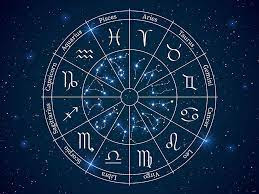How Does Astrology Work?
Understanding the Universe: Astrology's Function
Overview
Astrology is a centuries-old science that draws its
inspiration from the study of celestial bodies. It has fascinated people for
millennia and sparked their interest about the connections between the universe
and human existence. Even though astrology is questioned by many scientists, it
is nevertheless a useful tool for introspection and direction. This article
examines the basic ideas behind astrology and its supposed methods of
operation.
The Fundamentals: Houses, Signs, and Planets
The three main pillars of astrology are zodiac signs,
astrological houses, and planets. It is thought that the planets in our solar
system—including the Sun and Moon—have an impact on different facets of human
life. Love, communication, ambition, and other aspects of life are governed by
the several planets, each of which is linked to particular attributes.
The apparent course of the Sun across the sky during the
year is represented by the zodiac, which is divided into twelve signs. The
astrological meanings of these signs, which range from Aries to Pisces, are
further subdivided into three modalities (cardinal, fixed, and mutable) and
four elements (fire, earth, air, and water).
Twelve divisions of a person's birth chart, known as
astrological houses, represent particular spheres of life. The planets'
positions inside these houses shed light on a person's personality,
relationships, and overall life path.
The Horoscope: A Heavenly Momentum
The birth chart, sometimes referred to as the natal chart or
horoscope, is the fundamental tool used in astrology. Based on the precise day,
time, and place of a person's birth, a personalised sky map is produced.
Plotting the Sun, Moon, and planets at that time within the astrological houses
creates a special arrangement that is believed to impact the person's fate and
character.
Each planet's position within a particular house and sign of
the zodiac adds to a person's astrological profile. A person with the Sun in
Leo, Moon in Cancer, and Venus in Libra, for instance, would have particular
characteristics linked to each of these astrological signs.
Aspects: Celestial Dialogues
Aspects, or the geometric angles created between planets,
are another thing astrologers take into account. These angles show the
relationships and interactions between various celestial bodies. Planets that
are near to one another, opposite from one another, and at a harmonious
angle—known as trines—are examples of common features. These factors add
subtleties to the analysis of a person's birth chart, providing a more thorough
knowledge of their character and course in life.
Transits and Advancements: The Story That Is Being Told
Astrology recognises the dynamic aspect of life's path and
is not static. Transits deal with the planets' present locations in the sky and
how they could affect a person's natal chart. Conversely, progressions
represent the continuous development of a person's character and life
experiences across time.
Astrologers provide advice on overcoming obstacles and
seizing opportunities in life by interpreting transits and progressions. These
dynamic astrological instruments offer an instantaneous insight into the cosmic
energies operating throughout a person's life.
In a synopsis
Astrology offers a distinctive prism through which people
can examine themselves and their life paths because of its complex web of
planetary influences and cosmic connections. Astrology may not be accepted as a
predictive science by scientists, but its continued use indicates that
individuals find it to be incredibly relatable. Astrology still offers a rich
tapestry of symbols and ideas that inspire us to consider the secrets of the cosmos
and our role within it, whether it is viewed with scepticism or with
wholehearted acceptance.
.jpg)

.jpg)
